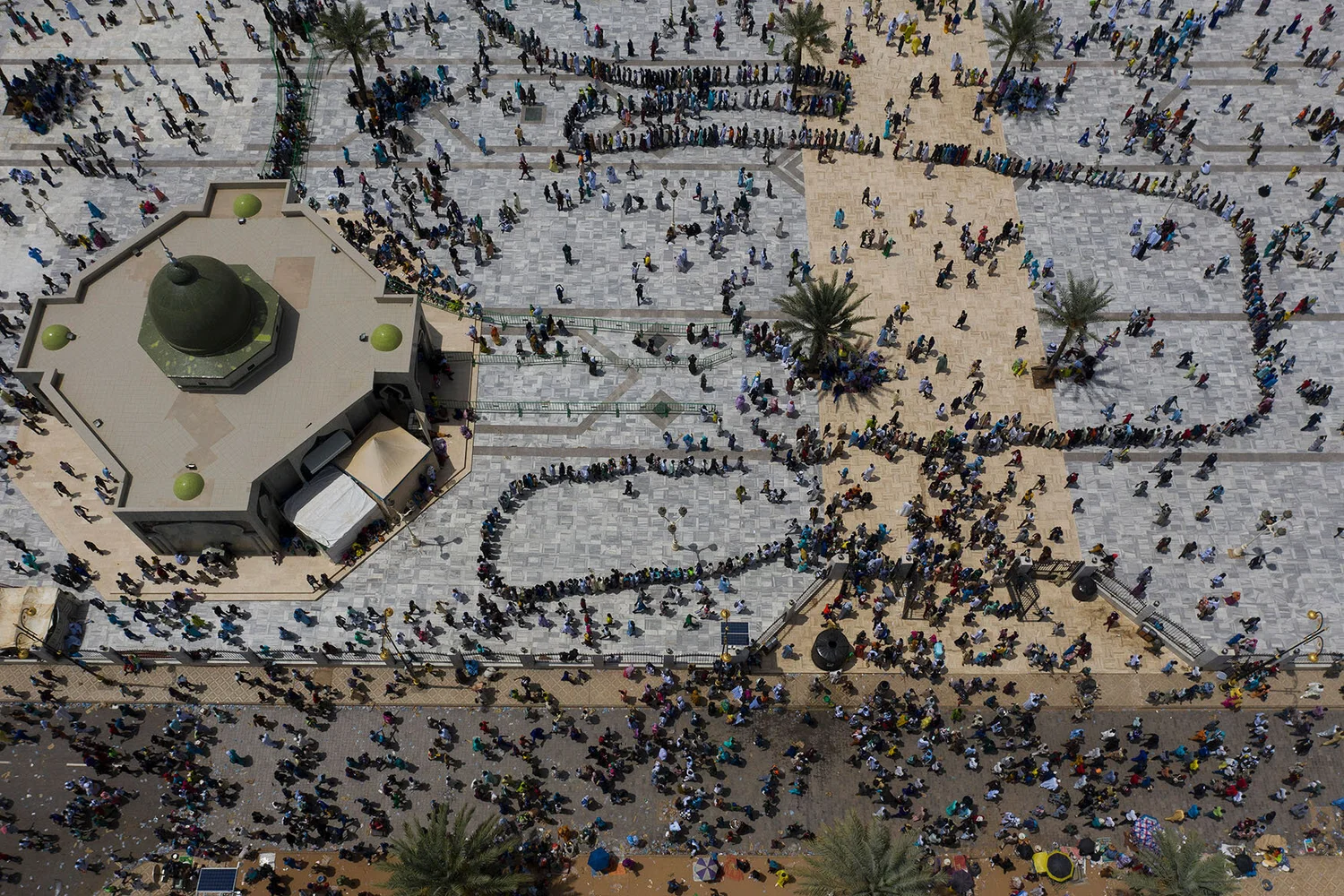
The Grand Magal is a huge annual pilgrimage that brings millions of Mouride Muslims to Touba, Senegal. It commemorates the spiritual ascension of Sheikh Amadou Bamba, the Mouride order’s founder, during his exile by French colonial rulers. The event, which is considered one of Africa’s most important religious gatherings, celebrates Bamba’s non-violent resistance to French colonialism.
The Grand Magal, held on the 18th day of the Islamic month of Safar, is celebrated for the 131st time. This pilgrimage draws hundreds of thousands of people from within Senegal and from diaspora communities in the United States, France, and Italy.
They converge on the city of Touba, located 200 kilometers from the capital of Dakar, to visit the Grand Touba Mosque and pay their respects at the tomb of Sheikh Amadou Bamba. The term “Magal” means “praise” in the local Wolof language, and the festival serves as a time for the Mourides to worship and reconnect with their family members.
During the 19th and early 20th centuries, France, which administered its “French West Africa” colonial region from Senegal, tried to stop the spread of Islam. However, Sufi orders like the Mourides engaged in a form of passive resistance, engaging in negotiation rather than armed conflict.
Sheikh Amadou Bamba, who lived from 1853 to 1927, led this non-violent struggle. His growing popularity in rural areas and the rapid expansion of his order made him a target for the French, who exiled him multiple times on charges of “inciting rebellion.”
Bamba’s followers see his 33 years of exile and surveillance not as a defeat but as a victory that elevated his spiritual status and strengthened the Mouridism tradition. The first Grand Magal was organized a year after Bamba’s death in 1927.
Today, it draws millions of participants, including Senegal’s political leaders, businesspeople, and diplomats. Senegal, a secular independent state since 1960, has maintained a unique balance between its modern secular government and its conservative Muslim traditions.
This coexistence, which has allowed Sufi orders to remain a central part of Senegalese social and political life, is believed to be the reason for the nation’s immunity to the influence of extremist organizations that have impacted neighboring countries in West Africa. Bamba’s non-violent resistance has been compared to that of Mahatma Gandhi, earning him the nickname “Muslim Gandhi” in some Western sources.
